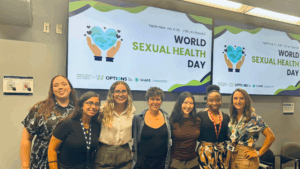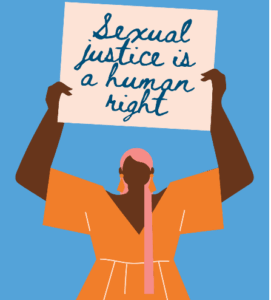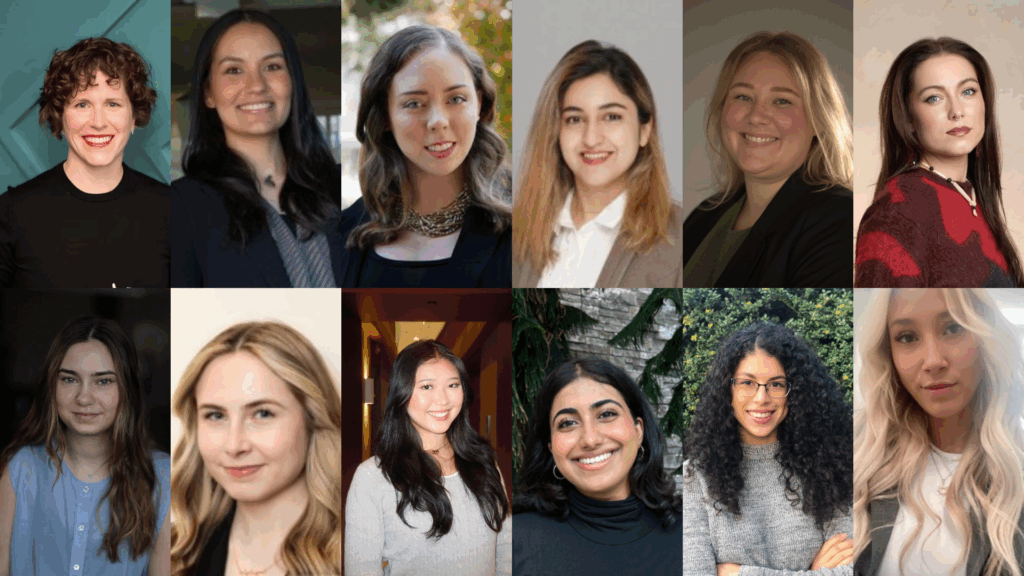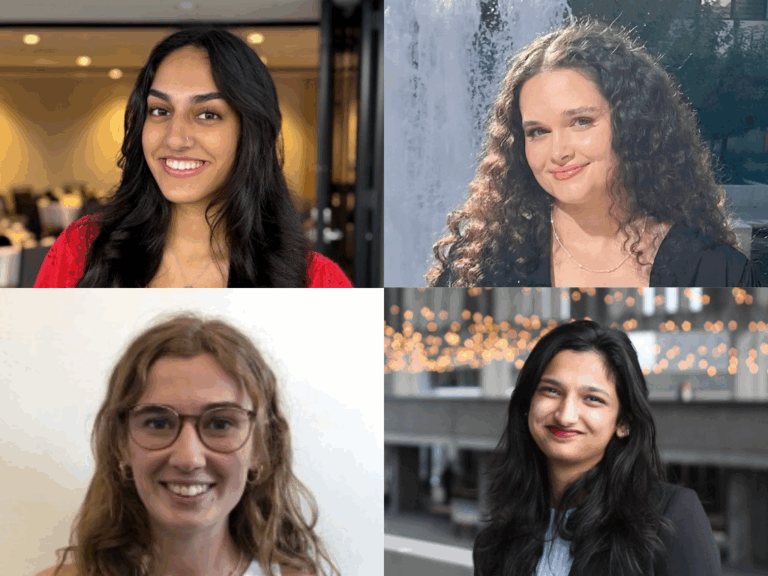
Celebrating World Sexual Health Day 2024: Positive Relationships
On September 4th, the Women’s Health Research Institute, in partnership with Options for Sexual Health (OPTIONS) and the Sexual Health And genito-Pelvic pain knowledge Empowerment Hub (SHAPE), proudly celebrated World Sexual Health Day (WSHD) 2025. This year’s theme, Sexual Justice: What Can We Do?, focused on advancing sexual and reproductive rights, justice, and access to care globally.
The event featured rapid-fire presentations from students, trainees, and fellows, highlighting current research in sexual and reproductive health. Through these powerful contributions, the message was clear: sexual health is a human right.
Special guests Tiffany Melius, Executive Director of OPTIONS, and Nicole Pasquino, Clinical Director, emphasized the importance of bodily autonomy and the right to choose, spotlighting OPTIONS’ work in increasing access to long-acting reversible contraceptives (LARCs), including implants and IUDs. OPTIONS is Canada’s largest non-profit provider of sexual health services, known for its inclusive, non-judgmental care and its Sex Sense line—a free, confidential, evidence-based, pro-choice resource.
Dr. Lori Brotto, Executive Director of the WHRI, closed the opening remarks by unveiling the SHAPE Hub with Dr. Jessica Wood, Director of Research & Policy Development at Sex Information and Education Council of Canada (SIECCAN). The SHAPE Hub is a new resource portal dedicated to mobilizing knowledge, amplifying patient voices, and promoting equity in sexual health and genito-pelvic pain care.
Continuing Sexual Justice
The World Association for Sexual Health (WAS) offers a comprehensive sexual justice resource page covering key areas that support the ongoing conversation around sexual justice.
The resource page includes accessible, evidence-based information on a wide range of topics, including sexual and reproductive rights and LGBTQ+ adolescents. These resources are designed to empower individuals with the knowledge to promote sexual well-being—not just on World Sexual Health Day, but in everyday life.

Meet the WSHD 2025 Presenters
Presentation covered themes of standards of care in clinical practice, sexual health justice, healthcare access and sexual distress/dysfunction. Scroll below to meet the presenters and see their topics.

Group 1: Standards of Care, Treatment Guidelines, Clinical Practice/Calculations
“BRIDGE: Building a clinical framework for physiotherapy management of genito-pelvic pain”
Jodie is a PhD Student in the UBC’s Women+ and Children’s Health Sciences (WACH) Program under the co-supervision of Dr. Brotto (UBC Sexual Health Research Lab) and Dr McLean (UOttawa Motor Function Measurement Lab). She has been a practicing physiotherapist in Vancouver since 2012, working in multidisciplinary care in maternal, pelvic health and persistent pain.
“Follow-up with HPV testing and cytology in patients with positive margins (CIN II+) after conization and expectant management”
Juliana Vanessa Rincón López, MD and clinical epidemiologist, is a PhD student in Population and Public Health at the University of British Columbia. She studies HPV-related diseases, prevention, and women’s health.
“Designing a Virtual Reality Treatment for Vaginismus: VIVID 2.0”
Lauren is completing a second bachelors degree in Psychology at the University of British Columbia. She brings with her a prior BA in Integrated Media from Emily Carr University and 10 years of experience in adult education and training for software companies including Apple and Hootsuite.
“How Far is Too Far? Understanding Factors for Safe Medication Abortion when Far from Emergency Services”
Fatemeh Khorami holds a PhD in Engineering, where she specialized in sex differences in fall biomechanics. She is now a Postdoctoral Fellow with the Contraception and Abortion Research Team (CART) at the University of British Columbia, transitioning her expertise in data analysis into health and policy research.
Group 2: Sexual health justice/intersectionality & Sexual distress/dysfunction
“The Importance of Relationality and Collective Action in Indigenous Sexual and Reproductive Justice”
Chelsey Perry(she/they) is a citizen of the Nisg̱a’a First Nation registered through the village of Gingolx in the Nass Valley. Chelsey is an Indigiqueer PhD (c) in the Department of Medicine at the University of British Columbia. At the Indigenous Equity Lab, Chelsey’s research focuses on Indigenous health, gender equity, 2SLGBTQQIA+ health, sexual and reproductive health, rematriation, climate justice, and health policy.
Piper Scott-Fiddler (she/her) is a proud Métis and mixed settler woman with family roots in Treaty 6 territory and citizenship with Métis Nation British Columbia. She is a Research Coordinator with a focus on Indigenous health and wellness, centering reproductive justice and sexual and reproductive health
“Paternal Sexual Satisfaction and Mental Health from Pregnancy to 12-Months Postpartum: Implications for Maternal Health and Child Development”
Caroline Mawhinney is a research assistant with the Family Foundations Lab at Simon Fraser University, led by Dr. Emily Cameron. She holds a Bachelor of Fine Arts in Theatre Performance with a Minor in Psychology from Concordia University.
“Mosaic: Exploring the Experiences of Neurodiverse Persons with eSense”
Piper Slonecker has a Bachelor of Arts in Honours Psychology from the University of British Columbia (2025). Her research interests include sexual wellness, neurodivergence, interpersonal relationships, women’s health, stress, mood disorders, and intervention-based research. She hopes to pursue a career in clinical psychology.
“eSense-AI: Evaluating the Feasibility, Effectiveness, and Acceptability of AI-Chatbots in an Online Intervention for Female Sexual Dysfunction”
Denise (she/her) is a MSc student in the UBC Women+ and Children’s Health Sciences (WACH) program under the supervision of Dr. Lori Brotto. She earned her BSc in Behavioural Neuroscience in 2024 and her master’s research is focused on examining an AI-chatbot in an online intervention for female sexual dysfunction.
Group 3: Healthcare access and sexual health
“Calculating Free and Bioavailable Sex Hormones in Women Living with HIV”
Emma Sood is a second-year medical student at the University of British Columbia. Before medical school, she completed an honours BSc in Psychology, Neuroscience and Behaviour, and a MSc in Global Health at McMaster University. She is passionate about women’s health, particularly sexual and reproductive health.
“Supporting Access to HIV Care among Migrant Women Living with HIV”
Naomi is a PhD candidate in the Faculty of Education, School of Kinesiology at the University of British Columbia. Her doctoral research explores the healthcare experiences of migrant women living with HIV. She is interested in understanding how healthcare delivery is shaped by the wider sociopolitical context to, in turn, understand how institutions, power relations, and systems of oppression shape migrant women living with HIV’s everyday engagement with and access to health services.
“Exploring the Relationship between Resilience and Menstrual Functioning after Intimate Partner Violence-Caused Brain Injury”
Bradi Rai Lorenz is a PhD Candidate in the School of Health and Exercise Sciences at the University of British Columbia Okanagan. Her doctoral research focuses on advancing the understanding of brain dysfunction in women who have experienced intimate partner violence–related brain injury (IPV-BI).
Thank you
Each year, volunteers work with WHRI staff to make this event possible by reviewing abstracts, creating the session themes and moderating the sessions.
Thank you to our 2025 event volunteers Moneek Rawan, Mackenzie Bosch, Emma Goodwin, and Nadini Sharma for dedicating their time and effort to make this event such a success.

connect with the WHRI
Thank you to all the trainees who presented and supervisors who supported this work. We saw presentations under Dr. Lori Brotto’s UBC Sexual Health Research and Reproductive Choices Lab.
We look forward to seeing you in 2026!
- If you weren’t able to attend, please check out the recording on our YouTube channel.
- Check out some photos from social.